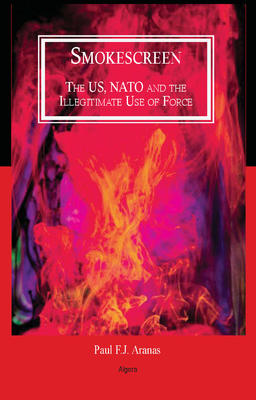
Sound Bite
The United States and NATO regularly employ the illegitimate use of force, using alternative norm justifications and a faulty definition of legitimacy. Meanwhile, the U.S. education system and mass media largely ignore the history and principles of the United Nations. "Smokescreen" reinforces the need to respect the rule of law enshrined in the UN Charter and offers a path forward out of the haze of purported altruistic justifications.
About the Author
Paul Aranas holds degrees in diplomatic studies from the University of Westminster–London, international relations and diplomacy from the Centre d’Etudes Diplomatiques et Strategiques (CEDS) in Paris, and religion from the University of Oregon. Additionally, he earned a Diploma with Distinction from the London School of Journalism (LSJ), a certificate in fiction writing from the LSJ, and a certificate from the Diplomatic Academy of the Russian Foreign Ministry in Moscow.
Dr. Aranas has taught in higher education and worked in politics as a staffer and a congressional candidate. He is founder and Executive Director of the International Law Education Group (ILEG).
|
|
About the Book
When is it legitimate for nations to use force?
The United States and NATO regularly employ the illegitimate use of force, using false arguments and a haze of purported altruistic justifications to justify their actions. But objective standards to...
When is it legitimate for nations to use force?
The United States and NATO regularly employ the illegitimate use of force, using false arguments and a haze of purported altruistic justifications to justify their actions. But objective standards to legitimacy exist, and those standards are enshrined in the United Nations Charter.
'Smokescreen'Â analyzes the workings and legitimacy of the United Nations Security Council, and shows how the United States and NATO governments systematically create the false perception of legitimacy for the use of force. Whenever they cannot meet the standard, they simply employ alternative norm justifications of self-defense beyond the scope of Article 51 and humanitarian intervention.
Max Weber's definition of legitimacy, 'legitimit�ätsglaube' or the belief in legitimacy, has been widely used by social scientists. Unlike moral philosophers, social scientists favor empirical data; therefore, for them, measuring legitimacy becomes possible by measuring what people believe to be legitimate. In this framework the powerful have the ability to manipulate public opinion to create legitimacy for a particular action. The author argues that this is not legitimacy but merely a perception of legitimacy to justify aggression.
David Beetham maintains that Weber's definition is a catastrophe, and in its place he offers a formula for legitimacy based on the objective criteria of legality, shared beliefs between dominant and subordinate, and consent from at least the most significant subordinate actors. This book argues that the United Nations Security Council, backed by the UN Charter, holds real legitimacy based on Beetham's formula. Meanwhile, the U.S. education system and mass media largely ignore the history and principles of the United Nations.
The book offers a way forward toward international peace and security, in both the interests of Western countries and humanity as a whole.
|
Reference & Research Book News | More »
Reference & Research Book News
This volume on international foreign policy examines the question of political legitimacy in military intervention and explores the ways in which legitimacy, as defined by national actors, most often represents a thin veil covering vested interest and unilateral aggression. The work posits that a more rigorous definition of legitimacy, such as modeled by the United Nations as a mediating force for consensual standards, would prevent humanitarian tragedies that result from illegitimate military intervention. Aranas is an independent foreign policy scholar.
|
|
Pages 248
Year: 2012
BISAC: POL004000
BISAC: SOC007000
Soft Cover
ISBN: 978-0-87586-894-3
Price: USD 22.95
Hard Cover
ISBN: 978-0-87586-895-0
Price: USD 32.95
eBook
ISBN: 978-0-87586-896-7
Price: USD 22.95
|














